TMS Therapy in San Diego
Learn About TMS Therapy - An Effective & Safe Treatment for Depression, Anxiety and OCD
Kadima is the most experienced TMS provider in San Diego. Are you interested in trying TMS Therapy?
Home » TMS Therapy in San Diego
In recent years, Transcranial Magnetic Stimulation (TMS) therapy became a promising treatment option for depression and other mental health disorders. This article provides an overview of TMS therapy, how it works, its effectiveness, and potential side effects. We will also cover some frequently asked questions about TMS therapy and how to get TMS Therapy for your mental health condition in San Diego.
Table of contents
Introduction to TMS Therapy
Transcranial Magnetic Stimulation (TMS) therapy is a non-invasive treatment that uses magnetic fields to stimulate specific areas of the brain. It was first approved by the U.S. Food and Drug Administration (FDA) in 2008 for the treatment of major depression that is resistant to traditional treatments such as antidepressant medication and psychotherapy.
Since then, TMS therapy has also been studied as a potential treatment for other mental health disorders like OCD, Anxiety, PTSD and Smoking Cessation.
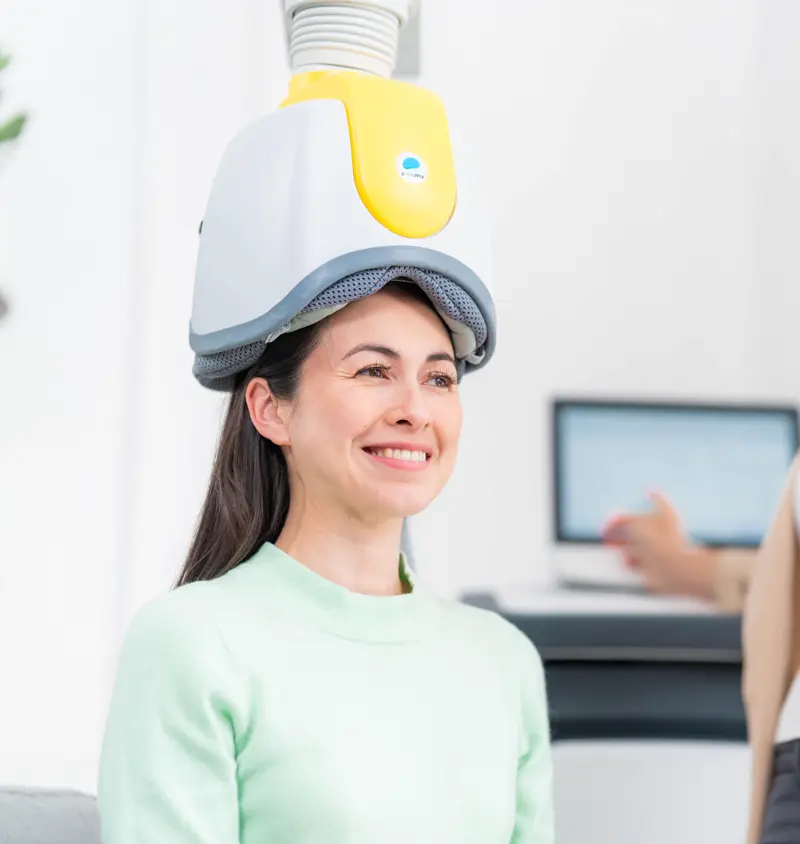
“Think of TMS as analogous to physical therapy for a muscle injury”, says Dr. David Feifel, “but instead of strengthening a weak muscle group, TMS strengthens a weakly functioning brain region.”
Effectiveness of TMS Therapy
Studies have shown that TMS therapy can be an effective treatment option for depression and other mental health disorders. According to the American Psychiatric Association, TMS therapy has been shown to be effective in treating depression in patients who have not responded to traditional treatments such as antidepressant medication and psychotherapy. At Kadima, we treated thousands of patients with TMS therapy. Listen to their TMS therapy reviews.
How Does TMS Therapy Work?
Transcranial Magnetic Stimulation (TMS) therapy operates through the utilization of a magnetic coil that delivers magnetic pulses to precise cerebral regions. These pulses are delivered in brief, intermittent outbursts, and their frequency and intensity can be regulated to concentrate on diverse segments of the brain. Kadima’s Brainsway deep TMS system contains distinct coils that can target various cerebral domains for various therapies.
What Are the Benefits of TMS Therapy?
TMS therapy has many benefits over other treatments for depression. Here are just a few:
Effective mental health treatment
TMS therapy has been shown to be Effective for Treatment-Resistant Depression, anxiety, OCD among other conditions. In fact, studies have shown that TMS therapy is more effective than medication for some patients.
FDA Approved Safe Treatment
TMS therapy is a safe treatment for depression. The procedure has been approved by the FDA and has been used to treat depression for over a decade.
Non-Invasive
TMS therapy is a non-invasive procedure that does not require any medication or surgery. This means that TMS is a non imperative therapy with minimal side effects, and patients can resume their normal activities immediately after the treatment.
TMS Is Covered By Most Insurance Providers
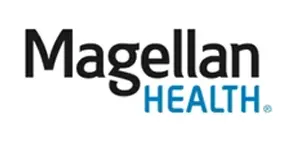
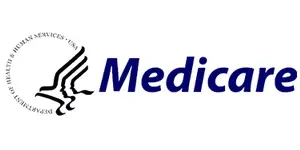
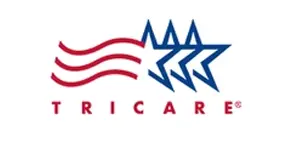

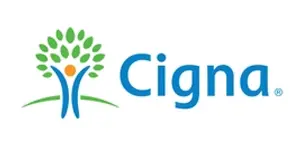
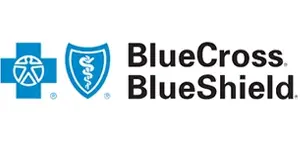
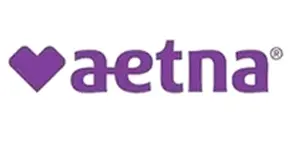



The scope of insurance coverage for TMS therapy depends on the specific condition being treated, the severity of your case, your chosen TMS provider, and your individual insurance plan.
Because TMS is FDA approved and the evidence for TMS’s efficacy is compelling most insurance companies will cover TMS treatment for depression in patients who have tried and failed to adequately benefit from conventional medication.
How Much Does TMS Therapy Cost?
Understanding the cost of TMS therapy can be confusing, especially with insurance considerations. Let’s break it down:
With Insurance:
- Coverage: Most major insurance companies cover TMS for Depression, AKA major depressive disorder (MDD).
- For obsessive-compulsive disorder (OCD), coverage is still evolving, so checking with your specific provider is crucial.
- Costs: If covered, you’ll typically be responsible for out-of-pocket expenses like deductibles, copays, or coinsurance. These vary significantly depending on your plan. Contact your insurance company for exact figures.
Out-of-Pocket:
- Depression (MDD) and Anxiety: If your insurance doesn’t cover TMS for Depression or Anxiety or you prefer self-pay, the average cost is $9,200 for a complete course of treatment.
- OCD: For OCD treated with TMS without insurance, expect an average cost of $7,500.
Key Factors Influencing Cost:
- Number of sessions: The total number of sessions needed varies based on individual response and diagnosis. This directly impacts the overall cost.
- Clinic location: Prices can vary depending on the clinic and geographical area. In San Diego, you can expect higher costs due to higher operational costs.
- Treatment type: Newer, faster protocols like Theta Burst or SAINT protocol may have different pricing structures.
TMS Therapy for Depression
Symptoms of Depression
Depression is a mental health disorder that can cause feelings of sadness, hopelessness, and loss of interest in daily activities. Other symptoms of depression can include:
- Changes in appetite and sleep patterns
- Fatigue and lack of energy
- Difficulty concentrating and making decisions
- Thoughts of suicide or self-harm
Traditional Treatments for Depression
Traditional treatments for depression include antidepressant medication and psychotherapy. Antidepressant medication can be effective for some patients, but it can take several weeks or months to see results. Psychotherapy can also be effective, but it requires regular appointments with a therapist. There are many people that don’t get better when trying traditional treatments. ECT Therapy is another treatment that has been used for depression.
How TMS Therapy Helps Depression?
TMS therapy can be a useful treatment option for patients who have not responded to traditional treatments for depression. The magnetic pulses delivered during TMS therapy can help stimulate specific areas of the brain that are associated with mood regulation. This can lead to an improvement in depressive symptoms. deep TMS Therapy, like we offer at Kadima can even go deeper than regular TMS and show better results. Learn more about deep TMS Therapy.
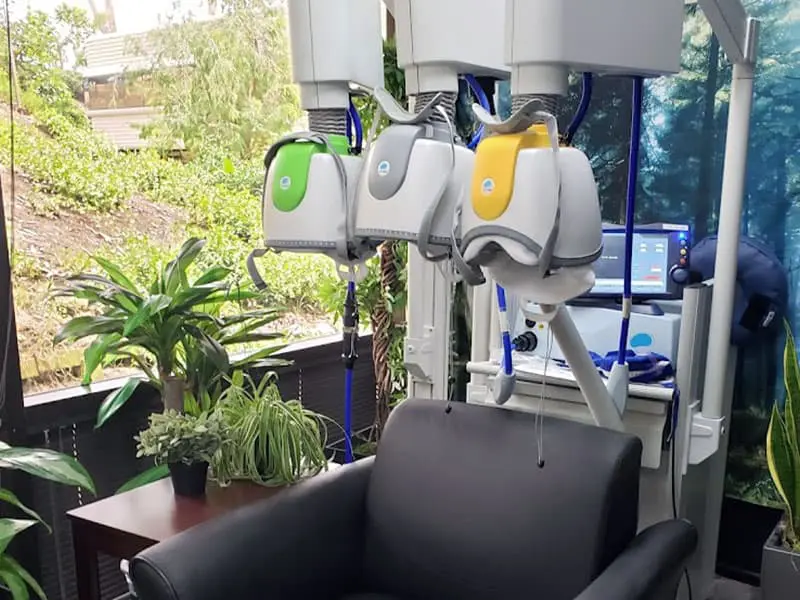
TMS Therapy for Other Mental Health Disorders
In addition to depression, TMS therapy has also been studied as a potential treatment for other mental health disorders. Some of these disorders include:
TMS for Anxiety
Anxiety disorders are a group of mental health disorders that can cause excessive worrying, fear, and nervousness. TMS therapy has been shown to be effective in reducing symptoms of anxiety disorders in some patients.
TMS for Post-Traumatic Stress Disorder (PTSD)
Post-Traumatic Stress Disorder (PTSD) is a mental health disorder that can occur after experiencing or witnessing a traumatic event. TMS therapy has been studied as a potential treatment for PTSD, and some studies have shown promising results.
TMS for Obsessive-Compulsive Disorder (OCD)
Obsessive-Compulsive Disorder (OCD) is a mental health disorder that can cause repetitive thoughts and behaviors. TMS therapy has been studied as a potential treatment for OCD, and deep TMS was FDA-approved for it.
Potential Side Effects of TMS Therapy
TMS therapy is generally considered to be a safe treatment option, but there are some potential side effects to be aware of. These side effects can include:
- Headache
- Scalp discomfort
- Tingling or twitching of facial muscles
- Seizures (although this is rare)
A comprehensive review of seizure risk published by our founder Dr. David Feifel and colleagues at Harvard medical school in 2021, revealed that the risk of TMS-related seizures is less than 1% overall and comparable to the risk of seizure from conventional psychiatric medication.
Most side effects of TMS therapy are mild and go away shortly after the treatment session ends.
Conclusion
TMS therapy is an innovative and promising treatment option for depression and other mental health disorders. It works by using magnetic fields to stimulate specific areas of the brain that are associated with mood regulation.
TMS therapy has been shown to be effective in treating depression in patients who have not responded to traditional treatments, and it may also be effective for other mental health disorders.
At Kadima, we use Brainsway‘s deep TMS system, the most advanced system currently available. It is FDA-approved for depression, anxiety, OCD, and smoking cessation. If you’re considering TMS therapy, contact us to see if it might be a good treatment option for you.
Frequently Asked Questions
Most frequently asked questions and answers
TMS Treatment duration and schedule:
- TMS for Depression and Anxiety: TMS therapy typically involves 30 sessions, delivered 5 days per week for 6 weeks. This is followed by a tapering phase of 6 additional sessions spread over 3 weeks.
- TMS for OCD: The treatment course starts with a preparation session, followed by 29 TMS sessions. These sessions are administered 5 days per week for 5 weeks, then 4 days per week in the final week.
- TMS for Smoking addiction: A total of 18 TMS sessions are delivered over 6 weeks. Each session includes brief counseling. The schedule is 5 days per week for the first 3 weeks, followed by 1 session per week in the final 3 weeks.
TMS treatment duration varies depending on the condition being addressed.
For depression and anxiety, a standard session using the older protocol typically takes 20 minutes, though a newer, faster method called Theta Burst reduces that time to just 3 minutes.
Each session for OCD usually takes 30-40 minutes, while smoking addiction treatment with TMS involves 25-30 minute sessions.
Individual responses to TMS therapy for depression can vary. While some people may experience subtle improvements within 1-2 weeks, it’s more common to see noticeable effects starting around week 4 of the treatment course. Ultimately, the individual’s unique response plays a significant role in determining the pace of improvement.
Many insurance companies now recognize the benefits of TMS therapy and offer coverage under certain conditions.
Most insurance companies cover TMS for depression (MDD) and OCD.
Contact your health insurance to determine your eligibility and what steps you need to take to get pre-authorization. Call us for help and to see if we accept your insurance.
Overall, TMS offers a safe and effective option for many seeking relief from depression and OCD.
Unlike vagus nerve stimulation or deep brain stimulation, TMS therapy offers a reassuringly safe approach to brain stimulation for depression. This non-invasive method avoids surgery or electrode implantation, and thankfully, no anesthesia or sedation is required. Compared to electroconvulsive therapy (ECT), the risk of seizures with TMS is incredibly low, less than 1%.
Most people find TMS comfortable and well-tolerated, with potential temporary side effects like headaches or tingling typically resolving quickly. Extensive research and FDA approval for major depressive disorder further solidify its safety profile.
Most people will qualify for TMS Therapy.
Please contact us and we can assess if TMS will be beneficial for you.
This treatment is:
- Safe – No long-term side effects.
- Non-invasive, meaning that it does not involve surgery.
- Does not require any anesthesia or sedation, as the patient remains awake and alert during the treatment.
- Non-systemic, meaning nothing circulates in the bloodstream throughout the body.
- FDA cleared for people suffering from Major Depression who do not benefit sufficiently from medication treatment.
- A potential treatment option for many psychiatric and neurologic conditions.
Interested in TMS Therapy?
Get in Contact
(858)412-4130
Address: 3252 Holiday Ct Ste 112, La Jolla, CA 92037
Leave your details and we will contact you:
